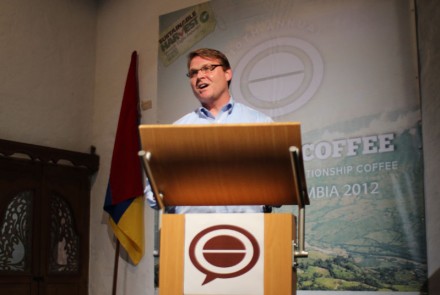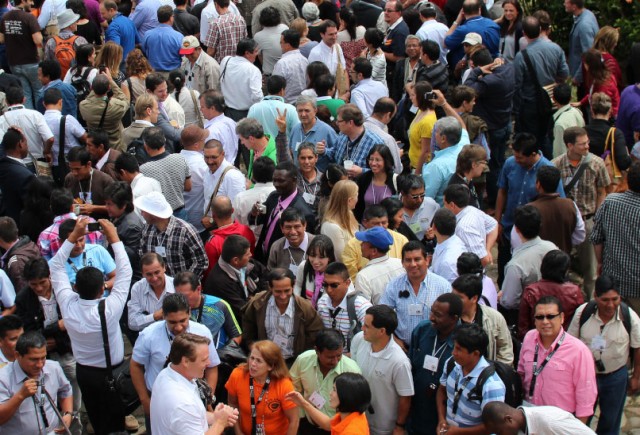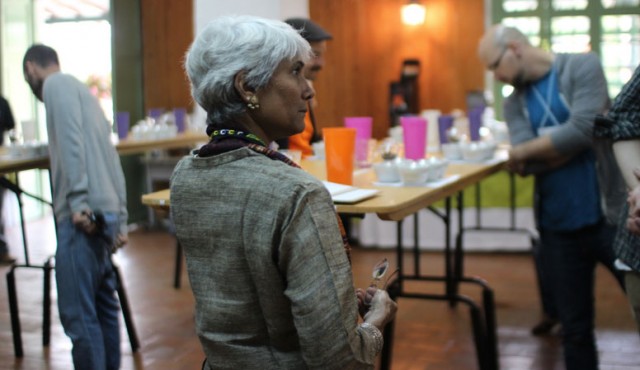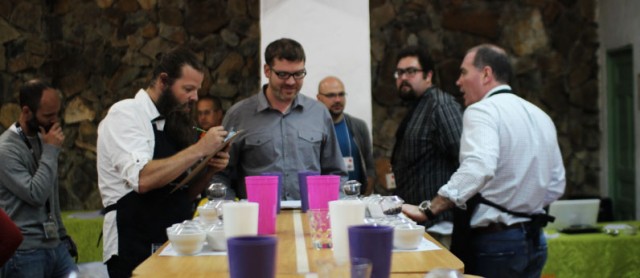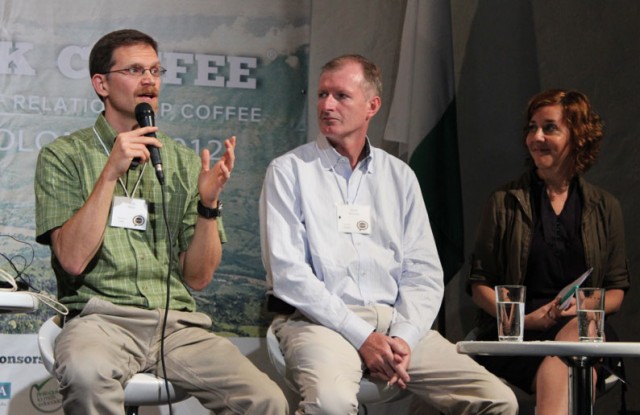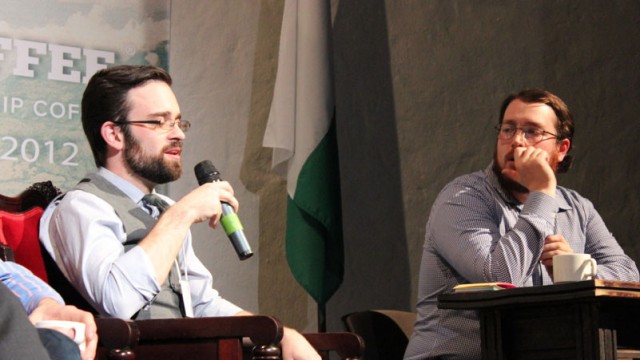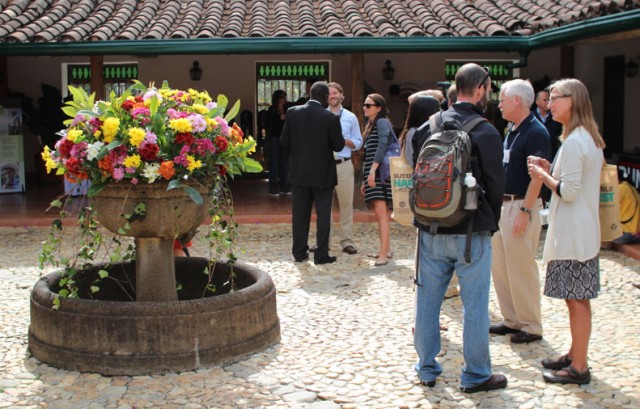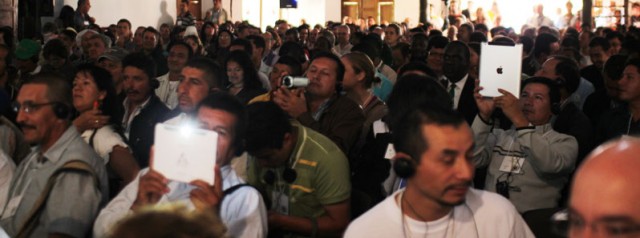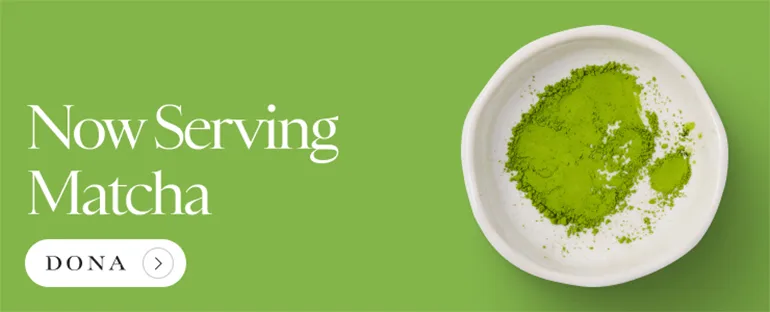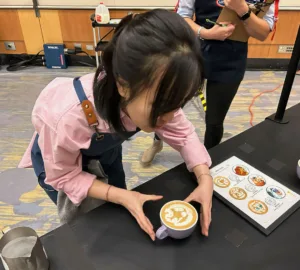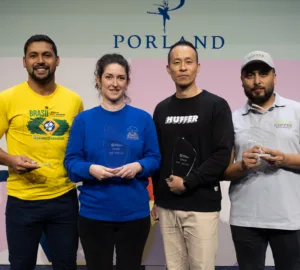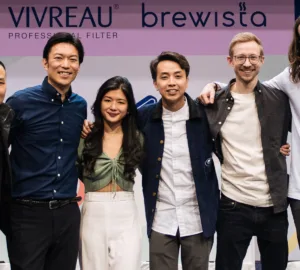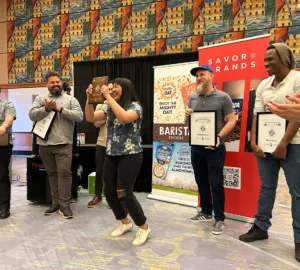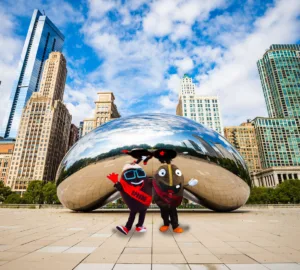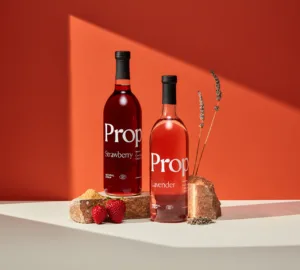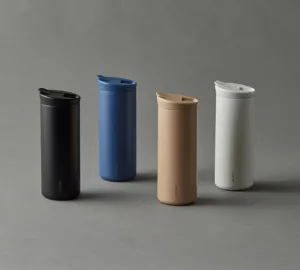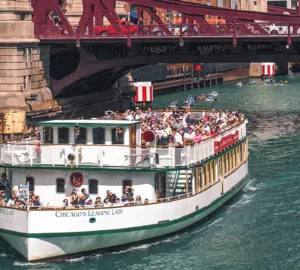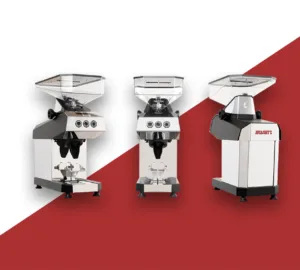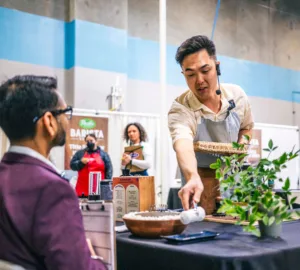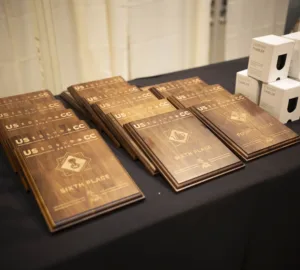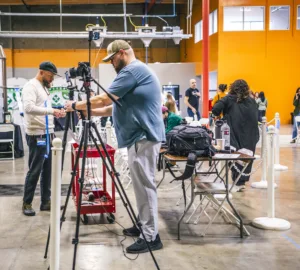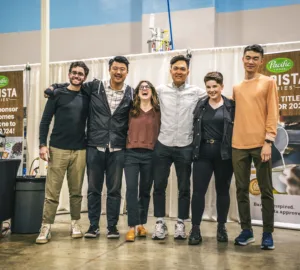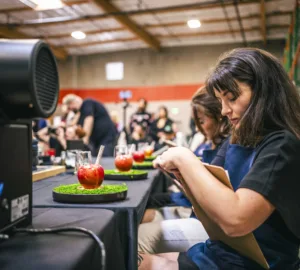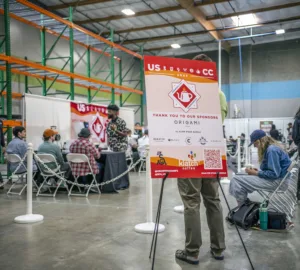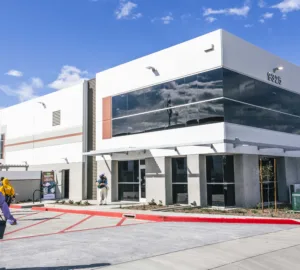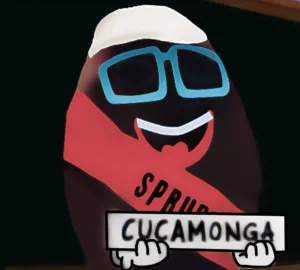The 10th annual edition of Let’s Talk Coffee has come and gone, and your trusty Sprudge.com editors were in full attendance live from Antioquia, Colombia, with access and on-site support made possible by the generosity of Sustainable Harvest. We tweeted, we took hundreds and hundreds of photos, and directly participated by hosting a panel of specialty coffee experts – four of the industry’s best and brightest who traveled to Colombia alongside us and told their stories to a packed house of producers, importers, finance experts, WalMart marketing staff, Colombian politicians, Sustainable Harvest staff, and assorted roasters from around the world.
28 unique countries were in attendance, from 6 continents – and we’re sure that just as soon as someone figures out how to grow or roast coffee in Antarctica, Sustainable Harvest will get them down to the next event. We’ve been endlessly jotting notes and snap snap snapping photos, so expect to hear more about our time in Colombia in the coming week, but today, before flying home, we wanted to share with you 5 thoughts we took away from our time at Let’s Talk Coffee.
1. Coffee is truly global.
This is not exactly a trenchant observation – there’s perhaps no industry more global, more far-flung than coffee – but it’s a fact that can be easy to forget as we go about the daily business of writing this website. The hands that grow and roast and connect the dots in the global coffee chain come in every imaginable hue, with business and innovation conducted in a babylon of languages. We’re aware of the fact that it’s kind of trite for us to call this a “takeaway”, but trust us, there is nothing, and we mean nothing that makes you more aware of the way coffee girdles the globe like attending a conference with the size and scope of Let’s Talk Coffee.
2. Robusta is indeed a big deal.
Robusta had a real seat at the table at Let’s Talk Coffee, and our Twitter coverage on this topic garnered hundreds of retweets and replies, some snarky, some exclamatory, and some just plain curious. We tried to approach the topic with an open mind, and came away learning that some of our preconceived notions about robusta were exactly that – preconceived, and based on reputation rather than on facts. Which is not to say that we’re about to run out and advocate that our roaster friends switch over to robusta right away. The “Fine Robusta Workshop” we attended, which was the very first of its kind outside of India, yielded plenty of skeptical looks and maybe a few heart palpitations – robusta does have twice the caffeine content of arabica after all, and we were cupping at 2000 meters. Still, to call the robusta cupping we attended “unique” is to be perilously guilty of understatement, and one of the 7 coffees we cupped – a naturally processed high elevation robusta from Tanzania – was cupped out by experts at around 82.5 to 83, yielding acetic, fruit-like characteristics and a cleanness in the cup wholly unexpected from the robusta samples we’d tried previously.
We learned that almost all the robusta we’d tasted before Let’s Talk Coffee was suffering from defects, or had been grown at low elevation, and arabica with those two characteristics can be every bit as gross. Still, the smell in the room as dozens and dozens of samples of robusta were ground is something that we’ll probably never be able to forget. A very unique and unusual opportunity indeed, and look for more robusta coverage on Sprudge in the coming days.
3. Let’s Talk Coffee is about building scale – ethically and sustainably.
From Ben and Jerry’s to Green Mountain Coffee Roasters to WalMart, some of the biggest companies in the world see that sustainability is key to the coffee supply chain, and the way they tell (and sell) sustainability matters. Some of the people we met were genuinely inspiring, especially folks like Andy Barker, the Social Mission Specialist from Ben & Jerry’s, for whom advancing his company’s ethics and social interests is clearly an authentic passion. Ben & Jerry’s is owned by a massive company called Unilever, but a condition in their buyout requires this much larger company to report directly to a Ben & Jerry’s board that makes sure their company’s peaceful, mellow Vermont ethos is part and parcel with widespread distribution and a global supply reach. We learned a lot about Ben & Jerry’s from Mr. Barker’s presentation at Let’s Talk Coffee, and we came away from our time spent with him believing that Ben & Jerry’s commitment to ethical sustainability and Fair Trade certification is a very real and admirable thing.
4. The upper echelon of specialty coffee is but a drop in the global bucket.
There were folks at Let’s Talk Coffee whose companies roast six containers of coffee a day. And then there were our panel guests, the smallest of whom works for a two-store chain in Manhattan that sells 300 pounds a week. Even the bigger companies in the high-end specialty coffee game are mere garden gnomes compared to the likes of Green Mountain and WalMart, which is why it’s so fascinating that Sustainable Harvest was keen to give us a platform to highlight specialty coffee companies like Caffe Ladro, Blue Bottle Coffee, Cafe Sublime, and Everyman Espresso. What’s even more interesting is the way the room listened to what our guests had to say; our guest’s companies will never compete when it comes to volume, but quality is still a universal language that turns heads, from the big companies and especially from the producers alike, for whom a higher cherry price paid at origin is universal in its translation from English to Spanish, Portugese to Kinyarwanda. Kudos to Sustainable Harvest for giving the little guys a seat at the big kid’s table.
5. Let’s Talk Coffee is truly special.
This event was humbling in the same way a layover at the Amsterdam-Schipol Airport is humbling; Let’s Talk Coffee is a polyglot of languages, backgrounds, and roles in the supply chain that amounts to a coffee journalist’s dream. We’ve never before experienced a supply chain event with the size, scope, and history that equals what we saw at Let’s Talk Coffee, and it’s even more remarkable when you consider that Sustainable Harvest has been hosting this event for a decade. Where were you ten years ago? We were seniors in high school. You know what SustHarv was doing? They were throwing this event.
There’s some pretty troubling flexibility with the supply chain lexicon that gets bandied about the specialty coffee industry. Direct trade claims that conveniently forget the importer; companies who buy Fair Trade but don’t bother to label as such; and roasters for whom the daily ritual of cupping and re-cupping is a deletirious afterthought. But the “relationship coffee” model advanced by Sustainable Harvest has at its core a real and calculable body of evidence, which is to say, Let’s Talk Coffee is relationship coffee in action. You see it in the wide variety of attendees at the event (North Americans outnumbered by Peruvians, etc), and you see it in the intense, private meetings that went on all weekend away from the convention hall. You see it in the amount of business that gets done in one short weekend.
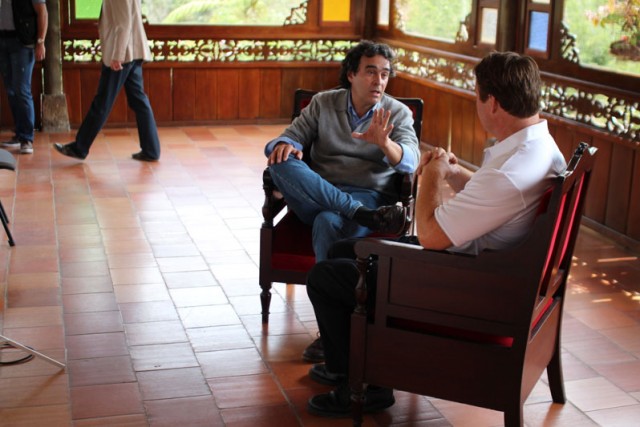
You also see it as David Griswold dances the rhumba with producers at the after party, or in Adam McClellan’s effortless shift from English to Spanish and back again, mediating between North American buyers and Ecuadorian producers. We ourselves felt it first hand in the dozens of new connections and fresh conversations we had during our week in Medellin. Let’s Talk Coffee is a very modern event, but in the same breath it’s a kind of pre-technology festival of real human interaction, where the social networking happens over arepas instead of iPhones. We’ve never seen anything like it, and it’s our pleasure to be able to bring you words, pictures, and videos from our week in Medellin.











